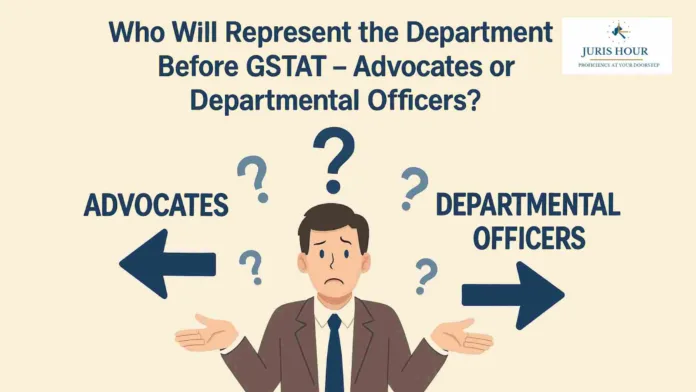As the much-awaited Goods and Services Tax Appellate Tribunal (GSTAT) gears up for functioning, a crucial administrative question remains in limbo — Who will represent the department before the Tribunal: Advocates or Departmental Officers?
In the case of the Customs, Excise and Service Tax Appellate Tribunal (CESTAT), the norm has been clear – departmental officers represent the government in disputes. However, no similar clarity has yet emerged for GSTAT, leading to a policy-level debate within government corridors.
Interestingly, the Delhi Government has taken a proactive step and issued a list of advocates who are to represent it before the GSTAT. This move signals a possible preference towards professional legal representation over internal officers. If this becomes a precedent, it raises further questions about how and when other States and the Centre will initiate their processes to empanel advocates.
However, sources within the Central Board of Indirect Taxes and Customs (CBIC) reveal that there is an ongoing discussion about using existing departmental officers for representation before GSTAT. The reasoning behind this approach is primarily financial — departmental officers are already on the government’s payroll and would not require additional remuneration, unlike empanelled advocates who would need to be paid per case or retainer agreements.
That said, the idea is not final and appears to be only one of the options under consideration. There is parallel talk about appointing advocates, similar to other quasi-judicial forums like the Central Administrative Tribunal (CAT), National Company Law Tribunal (NCLT), and the Appellate Tribunal under the Prevention of Money Laundering Act (PMLA), where legal professionals typically represent the government departments.
The lack of uniform policy and clarity is leading to administrative uncertainty, especially as several State benches of GSTAT are now in the process of becoming operational. While Delhi has moved ahead, other states are still in the early stages of planning or decision-making.
As GST litigation is expected to increase in volume and complexity, the effectiveness of departmental representation versus professional legal counsel will likely become a critical issue — not just from a legal strategy standpoint but also in terms of cost-effectiveness, consistency in litigation, and administrative feasibility.
With no official communication yet from CBIC or the Department of Revenue on the final modality, stakeholders — including state tax departments, legal professionals, and litigants — are keenly watching how this issue unfolds in the coming weeks.
Read More: Rajesh Jain Appointed as Judicial Member at GSTAT: A Stalwart of Indirect Taxation Joins the Bench

